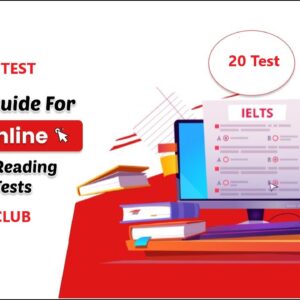Course Objectives:
- Familiarize students with the IELTS Speaking test format.
- Improve fluency and coherence in discussions on various topics.
- Develop the ability to use a wide range of vocabulary and complex sentence structures accurately.
- Enhance pronunciation, intonation, and natural conversational tone.
- Build confidence in speaking for extended periods and in handling unexpected questions.
Week 1-2: Introduction to IELTS Speaking and Fluency
- Objective: Familiarize students with the format and basic speaking skills.
- Content:
- Speaking Test Format:
- Part 1: Introduction and Interview (4-5 minutes) – General questions about yourself.
- Part 2: Long Turn (3-4 minutes) – Speaking for 1-2 minutes on a given topic.
- Part 3: Discussion (4-5 minutes) – Answering more in-depth questions related to the Part 2 topic.
- Fluency: Speaking smoothly without long pauses, fillers, or unnecessary hesitation.
- Avoiding Memorization: Practicing natural responses rather than pre-memorized answers.
- Speaking at Length: How to extend your answers and provide detailed responses.
- Speaking Test Format:
- Practice:
- Simulated Part 1 interviews with basic topics (family, hobbies, work/study).
- Practice expanding simple answers with extra information and examples.
Focus on fluency by avoiding fillers like “uhm,” “you know,” or “like.”
Week 3-4: Coherence and Connecting Ideas
- Objective: Develop the ability to connect ideas logically and coherently.
- Content:
- Coherence and Cohesion: How to organize your thoughts and structure your responses clearly.
- Linking Devices: Using transition words and phrases to connect ideas (e.g., “However,” “On the other hand,” “In addition,” “As a result”).
- Answer Structure: Beginning with a clear main idea, elaborating with supporting details, and concluding your point.
- Practice:
- Answering Part 3 discussion questions using linking words and structured responses.
- Practice creating clear, coherent responses on a variety of familiar topics (e.g., technology, culture, environment).
Record and review your answers to check for coherence.
Week 5-6: Vocabulary Development and Synonyms
- Objective: Improve the range and precision of vocabulary.
- Content:
- Topic-Specific Vocabulary: Building vocabulary for common IELTS topics (e.g., environment, health, education, work).
- Using Synonyms: Replacing simple words with more advanced vocabulary to avoid repetition.
- Idiomatic Expressions: Introducing natural, appropriate idioms to enhance responses.
- Descriptive Language: Using adjectives and adverbs to give detailed descriptions.
- Practice:
- Answer Part 2 tasks using advanced vocabulary and idiomatic phrases.
- Create a list of topic-specific vocabulary and synonyms for various themes.
- Practice using a range of descriptive language in speaking tasks.
Week 7: Grammatical Range and Accuracy
- Objective: Enhance the use of a variety of sentence structures and accurate grammar.
- Content:
- Complex Sentences: Using relative clauses, conditionals, passive voice, and perfect tenses.
- Subordinate Clauses: Including dependent clauses to add depth to your answers (e.g., “Although…,” “Because…,” “If…”).
- Common Errors: Correcting mistakes in verb tenses, subject-verb agreement, and sentence fragments.
- Practice:
- Part 3 discussion questions with a focus on complex sentences.
- Practice combining simple sentences into more complex structures.
Record responses and review grammatical accuracy.
Week 8: Handling IELTS Part 2 – Long Turn (Cue Card)
- Objective: Build confidence and fluency in speaking for 1-2 minutes on a specific topic.
- Content:
- Cue Card Structure: Organizing a response with a clear introduction, body, and conclusion.
- Elaborating on Ideas: How to expand your answer by adding examples, personal experiences, and hypothetical scenarios.
- Staying on Topic: Ensuring all points of the question are covered without going off track.
- Practice:
- Simulate Part 2 tasks with a range of topics.
- Practice structuring your response by including an introduction, details, examples, and a conclusion.
- Use a timer to get comfortable speaking for 2 full minutes.
Week 9: Pronunciation and Intonation
- Objective: Improve pronunciation, intonation, and the natural flow of speech.
- Content:
- Pronunciation: Focus on clear articulation of words and reducing any mispronunciations.
- Intonation: Using a natural rise and fall in your voice to emphasize key points and show emotion.
- Stress and Rhythm: Understanding which words to stress in a sentence to sound natural.
- Pausing: Using natural pauses to gather thoughts and sound fluent.
- Practice:
- Record and review responses, focusing on pronunciation and intonation.
- Practice mimicking native speakers using audio resources, such as TED Talks or English podcasts.
Engage in pronunciation drills for challenging words or sounds.
Week 10: Handling Unexpected Questions
- Objective: Develop strategies to handle difficult or unfamiliar questions confidently.
- Content:
- Unexpected Topics: How to approach a topic you know little about by focusing on general ideas, opinions, or hypothetical answers.
- Paraphrasing the Question: Rephrasing the question to buy time and demonstrate comprehension.
- Stalling Techniques: Using phrases like “That’s an interesting question” or “I’ve never thought about that, but…” to give yourself time to think.
- Practice:
- Simulate challenging Part 3 discussion topics and practice giving thoughtful responses.
- Practice answering unfamiliar questions without hesitation, using paraphrasing and stalling techniques.
- Focus on maintaining fluency even when unsure about the topic.
Week 11: Review and Full Mock Speaking Test
- Objective: Simulate a full IELTS Speaking test and review performance.
- Content:
- Full Mock Speaking Test: Simulate all three parts of the speaking test under timed conditions.
- Self-Assessment: Review performance based on IELTS Band descriptors (fluency, coherence, lexical resource, grammatical range, pronunciation).
- Weakness Identification: Identify areas for improvement, whether it be vocabulary, grammar, fluency, or coherence.
- Practice:
- Participate in a full mock test with feedback on all three parts.
- Focus on identifying and correcting any remaining issues.
Peer review sessions to provide and receive feedback.
Week 12: Final Review and Test Day Preparation
- Objective: Finalize strategies for test day and improve confidence.
- Content:
- Final Review: Go over key speaking strategies and common mistakes.
- Time Management: Learn how to pace yourself throughout each section of the test.
- Test Day Tips: How to handle anxiety, stay focused, and maintain a positive attitude during the test.
Final Mock Test: Another full test simulation to ensure readiness.
Additional Resources and Practice:
- Weekly Speaking Assignments: Record and review at least 2 speaking tasks (Part 1, 2, or 3) per week.
- Partner Practice: Work with a speaking partner to simulate discussion questions and provide feedback.
- Listening and Speaking Drills: Listen to native English materials (podcasts, news, TED Talks) and practice summarizing them aloud.
- Topic Preparation: Prepare detailed responses for common IELTS topics (e.g., environment, technology, education) in advance to ensure comfort with key vocabulary.
Evaluation Criteria:
- Weekly speaking exercises graded based on fluency, coherence, vocabulary, grammar, and pronunciation.
- Mid-course progress review to track improvements and identify areas for further work.
- Final mock tests graded using the IELTS Speaking Band Descriptors.
Expected Outcome:
By the end of this course, students will:
- Speak fluently and confidently on a wide range of topics.
- Use a variety of complex grammar structures and advanced vocabulary accurately.
- Pronounce words clearly and use natural intonation and rhythm.
- Be fully prepared to handle any question type in all three parts of the IELTS Speaking test, achieving a Band 9 level performance.






Reviews
There are no reviews yet.